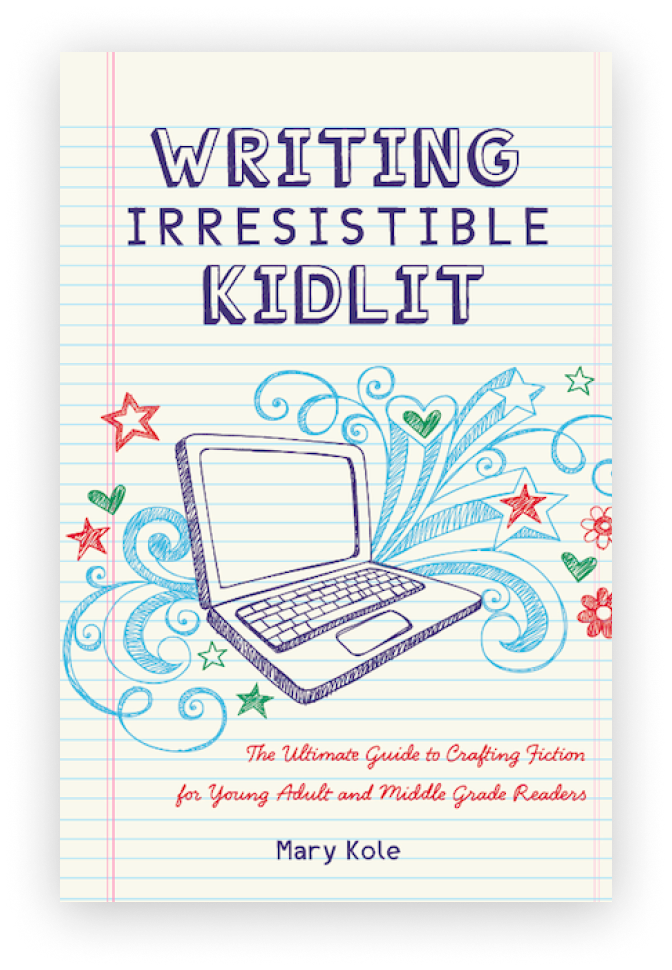The Value of a Developmental Edit
By Mary Kole
Mary Kole is a former literary agent, freelance editor, writing teacher, author of Writing Irresistible Kidlit, and IP developer for major publishers, with over a decade in the publishing industry.
As a writer, you know the importance of a developmental edit, and having your work reviewed by other people. If you don’t, consider learning about a developmental edit, and getting one for your next project. This type of edit goes beyond just catching grammatical errors and spelling mistakes, which is proofreading and copyediting. A developmental edit looks at your work from a holistic standpoint, providing feedback on character development, plot structure, pacing, writing style, and more. Here, I’ll explore the benefits of getting a developmental edit, and why every writer should consider it. However, I’ll also caution that not all writers might be ready for the developmental edit level of critique.
Benefit 1: A Developmental Edit Provides an Unbiased Perspective
When you’ve been working on a project for weeks or months, it's easy to get too close to it. You might be blind to the flaws in your writing because you're too familiar with the story, and also because it’s tough to see your own work objectively. That's where a developmental edit of your manuscript can help. The freelance editor will provide a fresh perspective that can highlight potential strengths and opportunities for growth in your manuscript. A developmental edit can help you see your writing from a reader's perspective, which is invaluable when trying to create a captivating story.
Benefit 2: A Developmental Edit Helps Improve Your Writing Craft
A good developmental edit should come from a professional editor for hire who is well versed in the craft of writing: someone who has extensive knowledge on how to develop characters, create conflict, and build a compelling plot. You can look at a developmental edit as a form of mentorship. A developmental editor will help you improve your skills and take your writing to the next level. The advice will be custom to your manuscript, too, and not just the kind of general guidance that you can get from a book or a writer’s conference. An editor can identify areas in your manuscript that need improvement and provide suggestions for how to revise accordingly.
Benefit 3: A Developmental Edit Increases Your Chances of Publication
If you're pursuing traditional publishing, then getting a developmental edit is a must. Publishing houses receive numerous manuscripts daily, which means they're looking for reasons to reject your work. With a developmental edit's help, you can submit a manuscript that is polished, well-rounded, and has a better chance of getting noticed by literary agents and editors alike.
Benefit 4: A Developmental Edit Prepares You for Self-Publishing
If you're planning on self-publishing, then you'll need to think of yourself as both the writer and the publisher. All publishing houses employ editors, because it’s that important to get outside feedback on your work. Self-publishing also means you're responsible for everything from editing to formatting to book cover design; in essence, all of the tasks a publishing house would do on your behalf in a traditional set-up. A developmental edit can help you lay a strong foundation by providing feedback on story structure, character arcs, pacing, and more. All of this will increase your chances of creating a quality product that readers will love. (If your story is poorly edited, or the idea execution isn’t strong, people will tell you in the reviews … if you manage to sell any copies. You do not want this to happen.)
Getting a developmental edit is not cheap, but it's an investment in your writing career. Before hiring a developmental editor, make sure you're ready for rigorous critique and feedback. You should be at a point in your writing career where you're mature enough to handle constructive criticism, and are also open to revising your work. If you're not quite there yet, that's okay. Keep writing and honing your craft until you're ready. But if you want to take your writing to the next level, then a developmental edit can be a gamechanger. By providing an unbiased perspective, improving your writing craft, increasing your chances of publication (or preparing you to self-publish), a developmental edit can help you achieve your goals, and maybe even your dreams.

Click here to purchase Writing Irresistible Kidlit, my book on fiction craft for MG and YA novels, out from Writer's Digest Books. This will show you my writing craft philosophy and give you lots of valuable advice, including tips for the novel revision process and self-editing. There are over 35 example novels cited and discussed throughout. It’s a valuable resource for any writer’s toolkit.
Click here to purchase Irresistible Query Letters, my book on query letters, including over forty examples with comprehensive notes on each one. There’s a ton of submission advice, best practices, and insider information in these pages, and you’ll really enjoy seeing what other writers are doing in the slush.
Click here to purchase Writing Interiority: Crafting Irresistible Characters, my book on interiority and character creation. Explore your protagonist’s thoughts, feelings, reactions and interpretations, expectations, and inner struggles to create a rich, immersive experience. This guide will empower you to create characters who live and breathe on the page, fostering an unbreakable bond with your audience.





